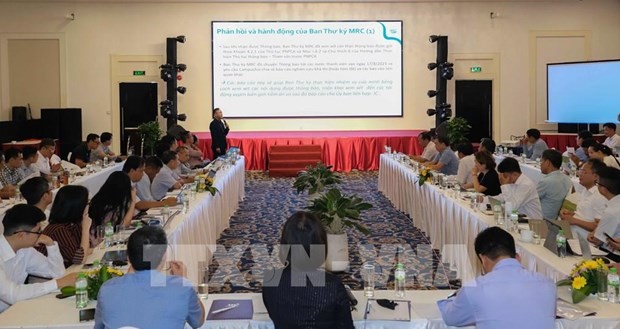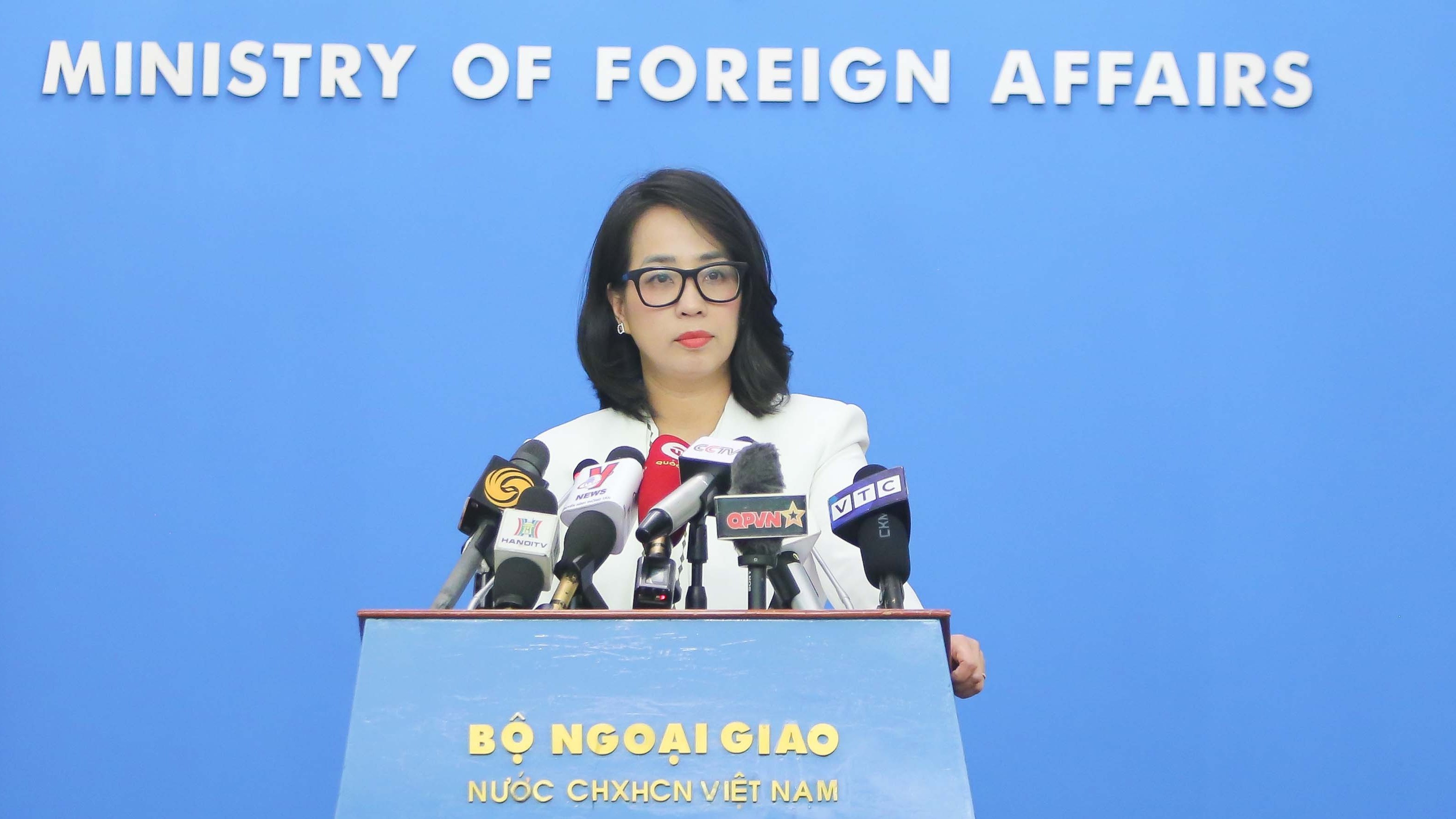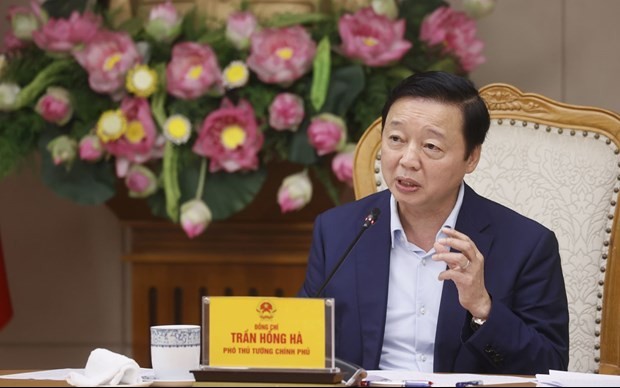
Vietnam asks Cambodia to share detailed information on canal project: National Mekong Committee
Latest
 |
| Vietnam asks Cambodia to share detailed information on canal project: At the consultation workshop on Cambodia’s proposed Funan-Techo canal project in Can Tho on April 23, 2024. (Photo: VNA) |
According to the Vietnam National Mekong Committee (VNMC), the canal is set to flow 180km, connecting Bassac River (called the Hau River in Vietnam, which is one of the two main branches of Mekong River) with Kep Port and onto the Gulf of Thailand.
The Cambodian side said the canal is designed to allow ships with a total load of up to 1,000 tonnes to pass through. Apart from three sluices, it will comprise 11 bridges, each measuring 161m long and 12m wide.
Its construction is scheduled to start in 2024 and be completed in 2027, with 7 million tonnes of cargo expected to be circulated through the new waterway each year.
The VNMC said it has held bilateral working sessions with the Cambodian side at different levels to raise Vietnam’s concern over the project’s impacts on the Mekong Delta. Vietnam asks Cambodia to share detailed information about the project, including the project feasibility report, conduct joint research on its impacts, and apply the International Mekong River Commission (MRC)'s guidelines for transboundary impact assessment to achieve common understanding of the project's transboundary impacts and appropriate mitigation measures.
At the meetings, the Cambodia National Mekong Committee took note of Vietnam’s concern over the project, saying it is working with relevant ministries and agencies of Cambodia to convey such opinions to them.
The VNMC has also suggested the MRC Secretariat support countries in conducting research on the project's transboundary impact assessment, and the Secretariat is also quickly working on independent research on the project's impacts, especially its transboundary ones, and proposing impact mitigation and monitoring measures.
On April 23, the VNMC coordinated with the MRC Secretariat in organising a consultation workshop on the project.
Participants voiced their concerns about the canal project, including its impact on water resources of the Mekong Delta, especially in the context of drought and saltwater intrusion plaguing the region more frequently and more severely. The Funan - Techo canal will transfer water from the Bassac River, a tributary of the Mekong River, to Kep port located outside the basin. This will significantly reduce water resources to the Mekong Delta, causing a negative impact on the livelihoods and production of local people and natural ecosystems.
Official announcements made by Cambodia said the Funan Techo canal will be used only for water transport, but according to media reports and remarks of Cambodian leaders, the canal will also serve irrigation for agriculture and socio-economic development in the country's southwestern region. As information about the operation of the three planned sluices in the project is lacking, Vietnam hopes that Cambodia will early share detailed information about the purpose, design and operation of the project.
Vietnam also wishes that Cambodia will participate in joint research on the project's impacts and reach agreement on suitable impact monitoring and mitigation measures.
Chief of the VNMC Office Nguyen Thi Thu Linh said that the Ministry of Natural Resources and Environment and the VNMC will continue to coordinate closely with the MRC Secretariat, Cambodia and other MRC member countries to accelerate research over the impacts of the Funan–Techo project and propose mitigation measures and monitor the impacts.
On April 11, at a regular press conference of the Ministry of Foreign Affairs of Vietnam, Deputy Spokesman Doan Khac Viet said Vietnam is highly interested in the Funan Techo canal project and requests that Cambodia work closely with the International Mekong River Commission to share information and assess the impacts of the project on the water resources and ecological environment of the Mekong Delta to ensure the harmonious interests of riparian countries and residents in the area.
He made clear that Vietnam supports the socio-economic development needs of Mekong River countries, while underscoring the importance of enhancing cooperation to effectively and sustainably manage and use the Mekong River's water resources for the sustainable development of the basin, the interests of communities on the basin, the future of later generations, and the solidarity among riparian countries, he said.

















